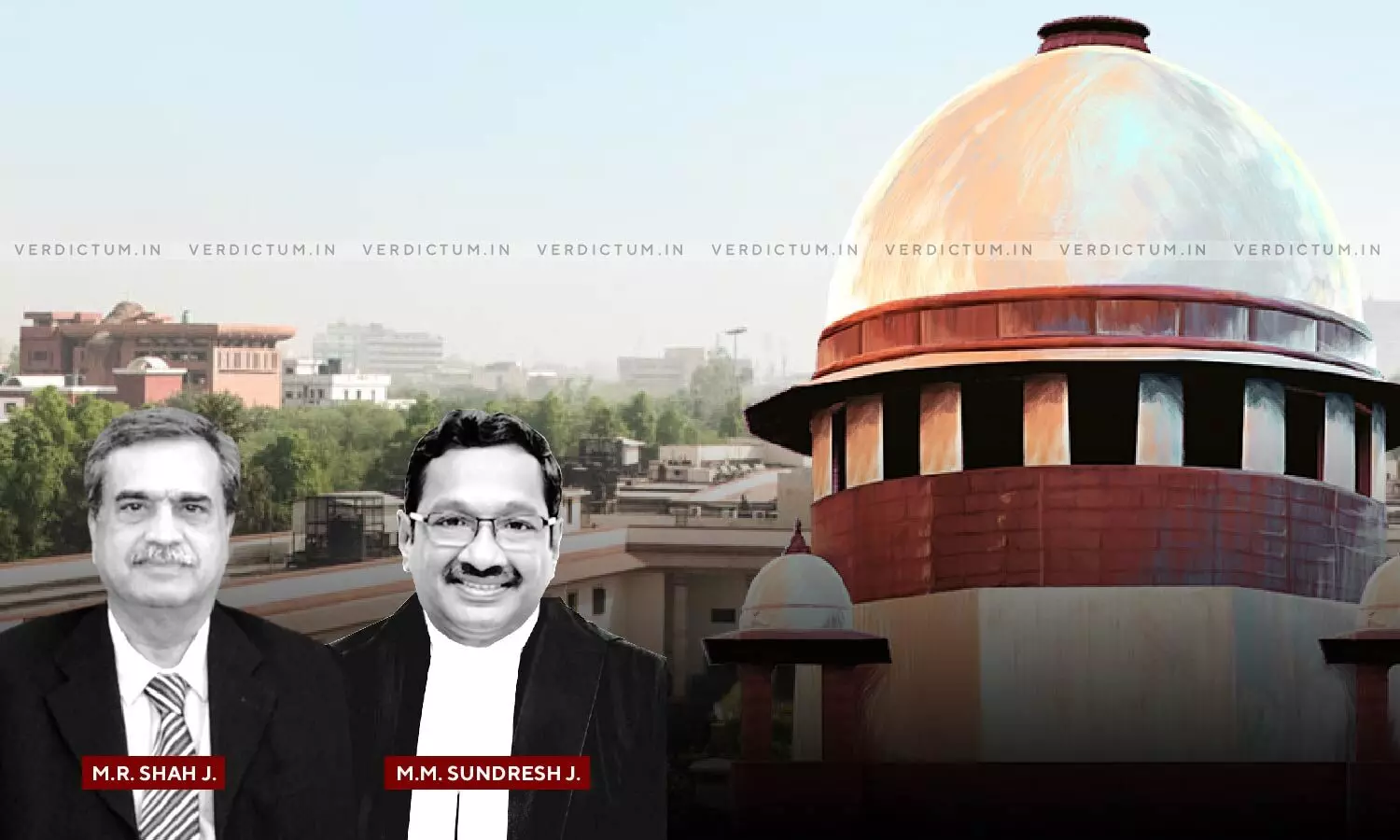
Unless Title Over Land Is Crystallised In Suit, Public Project Cannot Be Stalled Invoking Article 226- Supreme Court
 |
|The Supreme Court has observed that unless and until the title over the property is clear in a pending suit, a project which is to be implemented for a public purpose cannot be stalled in the exercise of power under Article 226 of the Constitution of India.
The Bench of Justice M.R. Shah and Justice M.M. Sundresh observed that "if the respondent No. 1 succeeds in the suit filed by him, in that case, it may claim the compensation, but unless and until its rights are crystalised in a pending suit, a public project cannot be stalled."
In this case, the appeal was preferred against the order of the Bombay High Court wherein the appellant was directed to remove itself and hand over the possession of the land to the respondent as the possession was secured forcibly and the same was arbitrary and illegal.
The possession of the land in question was with the respondent by way of a lease deed which was terminated in the year 2002 and against this termination the respondent had already filed a Civil suit for permanent injunction which is still pending adjudication. The land in question was allotted to the appellant via allotment order dated August 25, 2015 by the collector, for Nagpur Metro Rail Project to serve the public and the allotment was made subject to the outcome of the suit pending.
Senior Advocate K.V. Viswanathan appeared on behalf of the appellant and submitted that the title of the respondent was unclear and the suit was pending and it was an established principle of law that when there is a cloud over the title, a suit for mere injunction is not maintainable and it was imperative to file a suit for declaration. It was also submitted that the legality of the allotment order was never challenged by the respondent and that the appellant was legally put in possession of the land. it was also submitted that the legality of the allotment order was never challenged by the respondent and that the appellant was legally put in possession of the land.
Senior Advocate Kapil Sibal appeared on behalf of the respondent and submitted that the respondent was put in possession by way of lease deed for a period of 30 years and since then the respondent is continuously and lawfully in actual physical and peaceful occupation and possession of the entire land and that the dispossession of the respondent by the appellant is arbitrary and illegal.
The Apex Court observed that the High Court has erred in observing and holding that the appellant was in illegal possession as the order of allotment was never challenged by the respondent and since the allotment the appellant has been in occupation and actual possession of the allotted land thus, the appellant cannot be said to be in illegal possession.
The Apex Court further observed that the High Court erred in entertaining the title of the respondent with respect to the said land was not clear as the lease deed by which the respondent acquired the property had been terminated and the said termination is in question in a suit, still pending.
The Apex Court also observed that "the allotment dated 25.08.2015 is not under challenge and the same has not been challenged at all. Therefore, unless and until, the rights of the original writ petitioner in the land in question are established, which shall be decided in the Civil Suit which is pending, the writ petition filed by the original writ petitioner could not have been entertained by the High Court."
The Apex Court, with regard to the pending suit, noted that "if the respondent No. 1 succeeds in the suit filed by him, in that case, it may claim the compensation, but unless and until its rights are crystalised in a pending suit, a public project cannot be stalled. The allotment order dated 25.08.2015 and the possession handed over to the appellant pursuant to the said allotment cannot be said to be per se illegal."
Accordingly, the Appeal was allowed.
Cause Title- Nagpur Metro Rail Corporation Limited v. Orbit Motels and Inns Private Limited, Nagpur & Ors.
Click here to read/download the Judgment